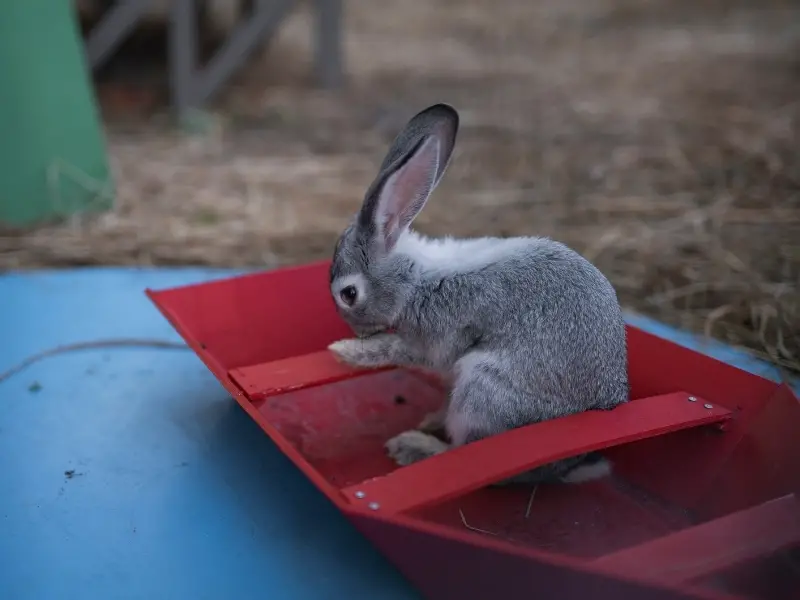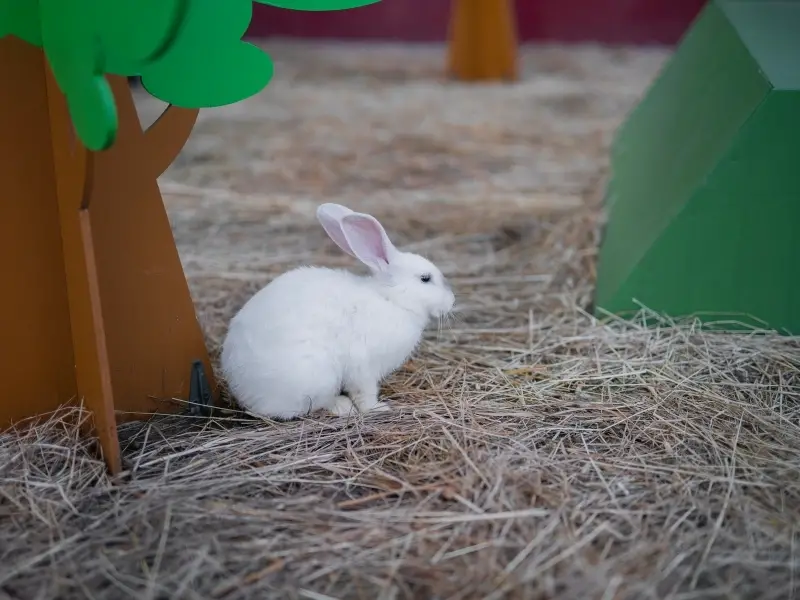Rabbit Lifespan: How Long Do These Fuzzy Critters Live?
Alright folks, let’s hop right into the heart of the matter. If you’re here, chances are you’re either a proud rabbit parent, a soon-to-be bunny owner, or just plain curious about how long these adorable creatures can stick around. Let’s cut to the chase: rabbit lifespan is more than just a number on a calendar. It’s a combination of factors like diet, genetics, environment, and the TLC (that’s tender loving care) you provide. So, buckle up because we’re diving deep into the world of bunny longevity.
Now, before we go any further, let’s address the elephant—or should I say rabbit—in the room. Most people think bunnies are low-maintenance pets. Spoiler alert: they’re not. Sure, they’re cute, fluffy, and make for great Instagram posts, but they require a lot of attention to live their best lives. And guess what? The better you take care of them, the longer they’ll be hopping around your living room.
So, if you’re ready to learn everything there is to know about the rabbit lifespan, from the factors that affect it to the secrets of keeping your bunny happy and healthy, then you’re in the right place. Let’s get started!
Read also:Exploring The Life And Marriage Of Khamzat Chimaev
Table of Contents
- Average Rabbit Lifespan
- Factors Affecting Rabbit Lifespan
- The Role of Diet in Rabbit Lifespan
- Genetics and Breeds
- Environment and Living Conditions
- Healthcare and Preventive Measures
- Wild vs Domestic Rabbit Lifespan
- Common Diseases and Their Impact
- Tips for Extending Your Rabbit’s Lifespan
- Conclusion: Making Every Hop Count
Average Rabbit Lifespan
Let’s talk numbers, shall we? On average, domestic rabbits can live anywhere from 8 to 12 years. But here’s the kicker: with proper care, some bunnies have been known to reach the ripe old age of 15 or even 16. That’s right, folks—your bunny could stick around for well over a decade!
Now, if you’re thinking, “Wow, that’s longer than I expected,” you’re not alone. Many people assume rabbits are short-lived pets, but the truth is, they can be a long-term commitment. So, if you’re considering bringing a bunny into your life, make sure you’re ready for the journey.
Factors Affecting Rabbit Lifespan
Alright, so we’ve established that rabbits can live a good long time, but what exactly determines how long they’ll be with us? There are several key factors that play a role in a rabbit’s lifespan:
- Diet: A well-balanced diet is crucial for a rabbit’s health and longevity.
- Genetics: Some breeds are simply built to last longer than others.
- Environment: A safe, stress-free living space can do wonders for a bunny’s lifespan.
- Healthcare: Regular vet check-ups and preventive care can catch issues early.
Let’s dive deeper into each of these factors in the sections below.
The Role of Diet in Rabbit Lifespan
When it comes to extending your rabbit’s lifespan, diet is king. Think of it this way: you wouldn’t expect a car to run smoothly without the right fuel, and the same goes for your furry friend. So, what exactly should you be feeding your bunny?
First and foremost, hay is the backbone of a rabbit’s diet. It provides the fiber they need to keep their digestive systems in tip-top shape. Pellets are fine in moderation, but fresh veggies and water should also be on the menu. And no, we’re not talking about carrots all day—those are actually high in sugar and should be given sparingly.
Read also:Chinese New Year 1985 Animal A Year Of The Ox And What It Means
Pro tip: always introduce new foods gradually to avoid upsetting your bunny’s stomach. And hey, if you’re ever unsure about what to feed your rabbit, consult a vet who specializes in small animals.
Genetics and Breeds
Let’s talk about the elephant in the room—or rather, the bunny in the cage. Genetics play a big role in a rabbit’s lifespan. Some breeds are simply hardier than others. For example, dwarf breeds tend to live longer than larger breeds, which can be prone to health issues like arthritis and joint problems.
But here’s the thing: genetics aren’t everything. Even if your bunny comes from a long line of healthy ancestors, they still need proper care to thrive. So, while breed can give you a rough idea of how long your rabbit might live, it’s no substitute for good old-fashioned TLC.
Environment and Living Conditions
Your bunny’s living space is just as important as their diet. A clean, safe, and stimulating environment can do wonders for their lifespan. Here are a few things to keep in mind:
- Cage Size: Bunnies need plenty of space to hop around. A cramped cage can lead to stress and health issues.
- Temperature: Rabbits are sensitive to extreme temperatures, so make sure their living area is comfortable year-round.
- Enrichment: Toys, tunnels, and other enrichment activities can keep your bunny mentally stimulated and happy.
Remember, a happy bunny is a healthy bunny. So, don’t skimp on the creature comforts!
Healthcare and Preventive Measures
Regular vet visits are a must for any responsible rabbit owner. But here’s the thing: not all vets are created equal. Look for a vet who specializes in small animals or exotics, as they’ll have the expertise to properly care for your bunny.
In addition to regular check-ups, preventive measures like vaccinations and parasite control can help keep your rabbit healthy. And don’t forget about dental care—rabbits’ teeth grow continuously, so they need plenty of hay and safe chew toys to keep them in check.
Wild vs Domestic Rabbit Lifespan
Now, let’s talk about the big difference between wild and domestic rabbits. In the wild, rabbits rarely live beyond 2 to 3 years. Why? Because they face a host of challenges that domestic bunnies don’t, like predators, harsh weather, and limited access to food.
On the flip side, domestic rabbits have the luxury of a safe home, a steady food supply, and (hopefully) plenty of love and attention. This gives them a significant leg up when it comes to lifespan. So, if you’re wondering why your pet bunny lives so much longer than their wild cousins, now you know.
Common Diseases and Their Impact
Unfortunately, even with the best care, rabbits can still fall prey to certain diseases. Here are a few common ones to watch out for:
- Dental Issues: Overgrown teeth can cause serious health problems if left untreated.
- GI Stasis: This potentially fatal condition occurs when a rabbit’s digestive system slows down or stops.
- UTIs: Urinary tract infections are more common in older rabbits and can lead to serious complications if not addressed.
Regular vet visits can help catch these issues early, so don’t skip those check-ups!
Tips for Extending Your Rabbit’s Lifespan
Alright, we’ve covered a lot of ground, but let’s wrap things up with some actionable tips for extending your rabbit’s lifespan:
- Feed them a well-balanced diet rich in hay, fresh veggies, and water.
- Provide a safe, clean, and stimulating living environment.
- Schedule regular vet visits and stay on top of preventive care.
- Keep them mentally and physically active with toys and playtime.
- Give them plenty of love and attention—happy bunnies live longer!
Remember, every little bit helps when it comes to your rabbit’s lifespan. So, don’t be afraid to go the extra mile for your furry friend.
Conclusion: Making Every Hop Count
And there you have it, folks—a deep dive into the world of rabbit lifespan. From diet and genetics to environment and healthcare, there are plenty of factors that can influence how long your bunny sticks around. But at the end of the day, it all comes down to one thing: love.
So, whether you’re a seasoned rabbit owner or a newbie just starting out, remember that every hop, skip, and jump counts. Take care of your bunny, and they’ll reward you with years of joy and companionship. And hey, if you’ve got any tips or tricks of your own, drop them in the comments below. We’d love to hear from you!
Until next time, keep those bunnies hopping and those hearts happy!


